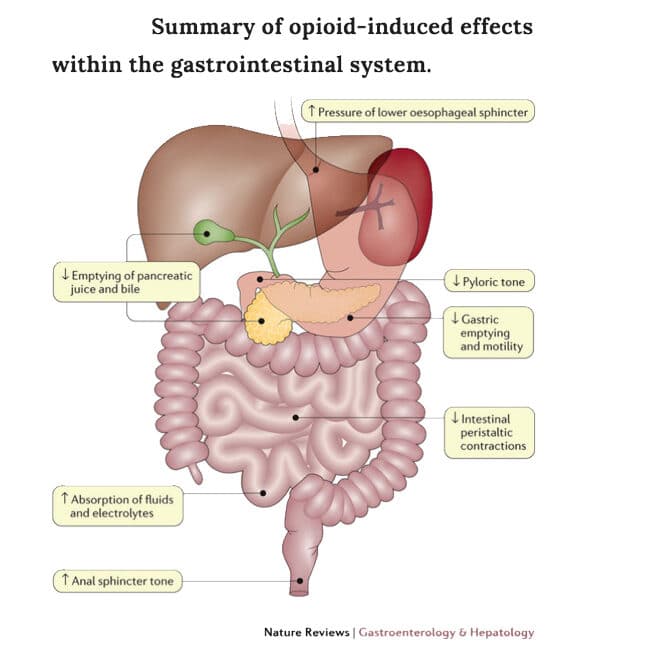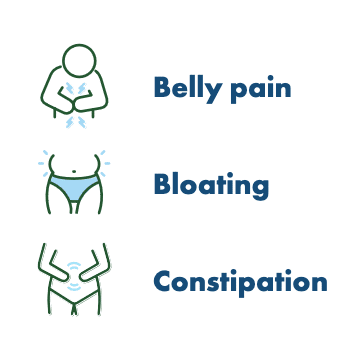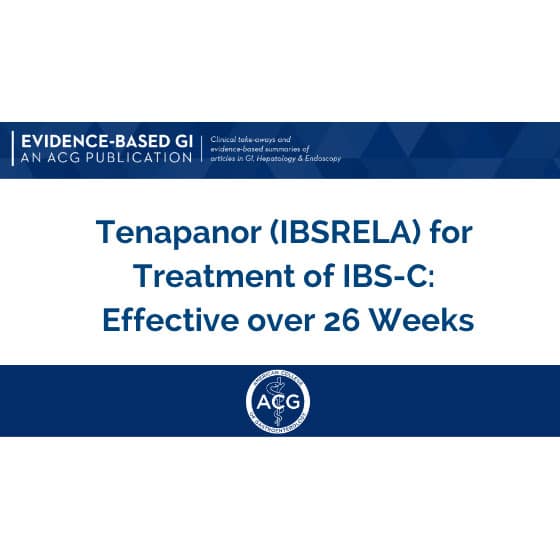Five Things Patients Need to Know About Opioids
Opioids were one of the earliest classes of medications used for pain across a variety of conditions, but morbidity and mortality have been increasingly associated with their chronic use. Despite these negative consequences, chronic opioid use is increasing worldwide, with the USA and Canada having the highest rates. Chronic opioid use for non-cancer pain can have particularly negative effects in the gastrointestinal and central nervous systems, including opioid-induced constipation, narcotic bowel syndrome, worsening psychopathology and addiction.
What You Need to Know
- There is no scientific evidence that the use of opioids for chronic non-cancer pain is helpful. In fact, it’s harmful in terms of increased risk of infections and early death.
- Opioids may produce opioid induced constipation (OIC) in about 50% of people on opioids, and also has been associated with narcotic bowel syndrome (NBS). About 5% of patients on opioids end up with NBS with opioid induced hyperalgesia.
Paradoxically, these individuals have worse pain and keep going to the emergency room—and the vicious cycle continues if they are prescribed more opioids. While OIC and be treated with certain medications, NBS needs to be identified and then the patients must be taken off narcotics to achieve pain control
- Chronic pain due to IBD, fibromyalgia, and centrally mediated abdominal pain should NOT be treated with opioids but with antidepressants and other central neuromodulators.
- If you are constipated or suffering from chronic abdominal pain and your doctor provides an opioid but your pain gets worse, talk to your doctor about getting off opioids and ask about the alternatives.
- Not everyone on opioids is drug seeking; many are just inappropriately treated for pain with opioids. If a patient is addiction prone they will continue to seek more opioids. But many patients with chronic medical conditions are put on opioids for pain, and they may not know any better. They believe since their pain is worsening that they need more opioids. But what they need is to be prescribed other types of medication and taken off of opioids.

Related Resources
About Dr. Drossman
Dr. Drossman is the Founder of the Rome Foundation, Member of the Board of Directors and Chair of the Scientific Advisory Board of the International Foundation for Functional GI Disorders (IFFGD). He is President, Drossman Center for the Education and Practice of Biopsychosocial Care LLC; President, Drossman Consulting LLC; Adjunct Professor of Medicine and Psychiatry, University of North Carolina School of Medicine; and Former Co-Director, UNC Center for Functional GI and Motility Disorders
Listen to our
latest Podcast!






